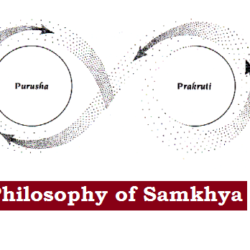
The legislations of Chhattisgarh are covered here briefly, focusing only on the important aspects of the law or Act. For detailed Acts of Chhattisgarh visit this link.
Chhattisgarh Food Security Act (छत्तीसगढ़ खाद्य सुरक्षा अधिनियम), 2012
Identification of Antyodaya Households (अंत्योदय परिवार) and Priority Households (प्राथमिकता परिवार): State Government can issue guidelines with respect to identification of Antyodaya Households and Priority Households. As per the Act, the following households shall be designated as Particularly Vulnerable Social Groups (designated as Antyodaya Households):
- All households of particularly vulnerable social groups as notified by the Central Government
- All households headed by widow or single woman
- All households headed by terminally ill person
- All households headed by a person with disability
- All households headed by a person of sixty years of age or more with no assured means of subsistence or social support
- All households headed by a person released from bonded labour
- Any other groups that may be prescribed
The following households shall be designated as Priority Households:
- All households of landless agricultural labourers
- All households of marginal and small farmers
- All households headed by a person registered as an unorganized labour
- All households headed by a person registered as an construction worker
Women Empowerment: Eldest woman (above 18 years of age) to be head of household for the purpose of issue of ration card. If the female member is below 18 years of age, she would be the head of household once she attains 18 years.
Role of Local Bodies: Local Bodies- Nagar Panchayat/Palika/Nigam and Janpad Panchayats are responsible for the implementation of Targeted Public Distribution System (TPDS) including household identification, card issuance, supervision of Fair Price Shops (FPS).
Punishment for Contravenes: Offenders shall be liable to be punished under Essential Commodities Act, 1955.
| Sr No. | Types of Ration Card | Food Items | Monthly Entitlement |
| 1 | Antryodaya Households (अंत्योदय परिवार) Yellow Card | Food Grains Black Grams Iodized Salt | 35 kg per month @ Rs. 1/- per kg 2 kg per household @ Rs 5/- per kg (only in Scheduled Area and MADA) 2 kg per household free (Scheduled Area) 1 kg per household free |
| 2 | Priority Households (प्राथमिक परिवार) Red Card Single Destitude: Grey Single Old gaged: Blue Disable: Black | Food Grains Black Grams Iodized Salt | 35 kg per month @ Rs. 2/- per kg (for family of 3-5 members) 7 kg per month per member @Rs. 1/- per kg (for family of more than 7 members) 2 kg per household @ Rs 5/- per kg (only in Scheduled Area and MADA) 2 kg per household free (Scheduled Area) 1 kg per household free |
| 3 | Normal Family (सामान्य परिवार) White Card | Food Grains | 35 kg per month @ Rs. 10/- per kg (for family of 3-5 members) |
Chhattisgarh Goseva Ayog Act (छत्तीसगढ़ गौसेवा आयोग अधिनियम), 2004
A Goseva Ayog was established under this Act for
- The preservation and welfare of cattle in the State (including seizure and custody of cattle carried for slaughtering.
- Providing financial assistance and for supervision and control of registered institution for Goseva (Goshala, etc)
- Promoting healthcare of cattle, cattle indigenous breeds, improved fodder-seed production
Chhattisgarh Land Revenue Code (छत्तीसगढ़ भू-राजस्व संहिता), 1959
| Sections | Provisions |
| Section 3 | Constitution of Board of Revenue |
| Section 11 | Revenue Officers from Assistant Superintendents of Lands Records (ASLR) to Commissioner (Divisional) Section 12: All Revenue Officers shall be subordinate to the State Government, to the Collector in a district. |
| Section 33 | Powers of Revenue Officers to require attendance of persons and production of documents and to receive evidence. Section 34: Compelling attendance of witness (including bailable warrant of arrest) |
| Section 44 | First and Second Appeal and appellate authorities First Appeal: Tahsildar/NT to SDM; SDM to Collector; Collector to Board of Revenue Second Appeal: SDM/Collector to Commissioner; Commissioner to Board of Revenue |
| Section 57 | All lands belong to the State Government Section 58: All land is liable to the payment of revenue to the State Government |
| Section 108 | A record-of-rights (RoR) shall be prepared and maintained for every village with particulars of the land. |
| Section 111 | The Civil Courts shall have jurisdiction to decide any dispute to which the State Government is not a party relating to any right which is recorded in the record-of-rights. |
| Section 114 | In addition to the map and RoR, there shall be prepared for each village a khasra or field book. Section 114A: It is obligatory upon every bhumiswami, whose name is entered into the khasra or field book, to maintain a Kisan Kitab in respect of his all holdings in a village. Section 115: Correction of wrong entry in khasra and any other land records by superior officers (Tahsildar can direct) |
| Section 131 | Any dispute regarding a cultivator shall have access to his fields or pasture lands to be decided by Tahsildar. |
| Section 147 | Recovery of land revenue arrears by Tahsildar by attachment or sell of movable or immovable property. Exception items: related with women and children, artisans’ tools, religion and minimum housing needs# #Link Exception holdings: if the holding is lesser than 6 hectares in Scheduled Area and 4 hectares in normal area |
| Section 165 | A bhumiswami may transfer any interest in his land. Section 165 (6): tribal land cannot be transferred to a non-tribal (in tribal areas) and without the permission of the Collector (in non-tribal areas) |
| Section 167 | Any bhumiswami may exchange by mutual agreement the whole or any part of their holding for purposes of consolidation of holdings. |
| Section 170 | Avoidance of transfer in contravention of Section 165 Section 170 A: Transfers in contravention to Section 165 (6) to be set aside Section 170 B: Reversion of land of members of aboriginal tribe which was transferred by fraud |
| Section 234 | Preparation of Nistar Patrak (निस्तार पत्रक) by SDM, embodying a scheme of management of all unoccupied land in a village## Link Section 237: Collector to set apart land for exercise of Nistar rights### Link (after securing minimum of 2 percent of total agricultural land for grazing needs) |
| Section 242 | Wajib-ul-arz (वाज़िब-उल-अर्ज़): Record of customs in each village regarding irrigation, right of way and fishng by SDM |
| Section 248 | Unauthorizedly taking possession of land may be summarily ejected by Tahsildar. |
| Section 250 | Tahsildar orders the restoration of the possession to the bhumiswami and put him in possession of the land. Section 250A: If order for restoration of possession is not complied for more than seven days, the violator can be confined in prison by SDM. |
| #Excluded from attachment and sale (u/s 147) |
| (i) The necessary wearing apparel, cooking vessels, beds and bedding of the defaulter, his wife and children, and such personal ornaments, as, in accordance with the religious usage, cannot be parted with by any woman; (ii) Tools of artisans and, if the defaulter is an agriculturist, his implements of husbandry, except an implement driven by mechanical power and such cattle and seed as may, in the opinion of the Tahsildar, be necessary to enable him to earn his livelihood as such; (iii) Articles set aside exclusively for the use of religious endowments; (iv) House and other buildings (with the materials and the sites thereof and the land immediately appurtenant thereto and necessary for the enjoyment) belonging to an agriculturist and occupied by him |
| ##Matters to be provided for in Nistar Patrak (u/s 234) |
| (a) Terms and conditions on which grazing of cattle in the village will be permitted. (b) The terms and conditions on which and the extent to which any resident may obtain (forest produce and minor minerals)– (i) wood, timber, fuel or any other forest produce; (ii) mooram, kankar, sand, earth, clay, stones or any other minor mineral. (c) Instructions regulating generally the grazing of cattle and the removal of the articles mentioned in paragraph (b) |
| ###Nistar Rights (u/s 237) |
| Collector may set apart unoccupied land for the following purposes, namely: (a) for timber or fuel reserve; (b) for pasture, grass bir or fodder reserve; (c) for burial ground and cremation ground; (d) for gaothan [and establishment of Gowshala and animal holding premises]; (e) for encamping ground; (f) for threshing floor; (g) for bazar; (h) for skinning ground; (i) for manure pits; (j) for public purposes such as schools, play grounds, parks, road, lanes, drains and the like; and (k) for any other purposes which may be prescribed for the exercise of right of Nistar. |
| Mode of Serving Notice (Schedule I, Rule 11-16) |
| 1. Every notice shall be served to the person concerned personally or to his recognized agent. (requires signature of receipt on original notice) 2. Where the person concerned cannot be found and has no recognized agent, service may be made on any adult male member of the family of the person concerned, who is residing with him. 3. Otherwise, the notice may be affixed at the last known place of residence of the person concerned or at some place of public resort in the village in which the land to which the notice relates is situate or from which the land is cultivated. (report of having done so, with panchnama to be attached) 4. If the person to whom a notice is to be served resides in another district, the notice may be sent by post to the Collector of such district for service. |
Chhattisgarh Agricultural Cattle Preservation Act (छत्तीसगढ़ कृषिक पशु परिरक्षण अधिनियम), 2004
This Act was passed to maintain communal harmony and peace for prohibition of slaughter of agricultural cattle. Important provisions of the Act are:
- It prohibits
- the slaughter of any agricultural cattle- cow, buffalo, bull.
- the eating or possession of beef of any agricultural cattle.
- the selling or transporting any agricultural cattle for purpose of slaughter.
- Contravention of any of the above three will be punished with an imprisonment up to 3 years or a fine up to Rs 10,000 or both.
- All offences under the Act are cognizable (arrest without warrant) and non-bailable.
Chhattisgarh Tonhi Pratadna Nivaran Act (छत्तीसगढ़ टोनही प्रताड़ना निवारण अधिनियम), 2005
The Act defines “Tonahi” as a person indicated by other person(s) that he or she possesses power to harm others (including animals) by black magic, evil eye or by any other means, whether known as Dayan, Tonaha or by any other names.
It also defines the “Identifier” as a person who indicates any person as Tonahi by his deed, words, gesture or behaviour, thereby on the basis of such indication that person may be harmed, or his security and honour may be adversely affected.
Important provisions of the Act are:
- It provides for rigorous imprisonment and fine for:
- identifiers of any person as Tonhi
- causing physical or mental harassment or damage to any person identified as Tonhi
- any act of jhar-phook, totka, use of tantra-mantra upon any person indicated as Tonhi
- claims to have power to harm any person or animal or living things by black magic, evil eye
- All offences under the Act are cognizable (arrest without warrant) and non-bailable.
Chhattisgarh Private Placement Agencies (Regulation) Act (छत्तीगढ़ निजी नियोजन अभिकरण (विनियमन) अधिनियम), 2013
This Act prohibits any persons or Private Placement Agency not to operate without license. It defines the “Private Placement Agency” as a person or body of persons other than a Government Agency, engaged in the business of providing work to any woman as domestic worker beyond the boundaries of Chhattisgarh.
The Functions and duties of private placement agencies:
- To furnish the details of employment of Domestic Worker to the Controlling Authority (within seven days from the date the woman was conveyed beyond the boundaries of State of Chhattisgarh)
- No fee charged from any domestic worker
- No employment, engagement or deployment of any woman below eighteen years of age
- To display a signboard outside its office showing its Name and License number.
- To maintain a register containing the names and addresses of domestic workers, who are engaged and employed
Important provisions of the Act are:
- It provides for rigorous imprisonment and fine for:
- Contravention of functions and duties meant for private placement agencies
- Operating without a valid license
- All offences under the Act are cognizable (arrest without warrant) and non-bailable.
Chhattisgarh Rent Control Act (छत्तीसगढ़ भाड़ा नियंत्रण अधिनियम), 2011
An Act to provide for adjudication of matters relating to rent by a Tribunal and to promote leasing of accommodation by balancing the interests of landlords and tenants. It extents in first instance to such of the Municipal areas which are comprising the District Headquarters in the State and later on to such of the other Municipal areas.
It provides for
- Constitution of the Rent Control Tribunal with a retired Judge of the High Court or serving or retired District Judge as Chairman
- Establishment of Rent Controller in every district not below the rank of a Deputy Collector
| Tenant’s Rights available under the Act |
| 1. Right to receive a copy of the agreement 2. Right to receive receipt against payments made 3. Right to receive accommodation in a good and tenantable state before occupation 4. Right to enjoy quiet possession of the accommodation 5. Right to all facilities and amenities forming part of the accommodation, in a working and functional manner 6. Right to routine maintenance of the accommodation by the landlord (or work done against reimbursement) 7. Guarantee against any willful cutting off of essential supplies like water and electricity by the landlord |
| Tenant’s obligations under the Act |
| 1. To acknowledge the title of the landlord over the accommodation 2. To use the accommodation only for the purpose for which it was leased out to him 3. Never to sub-let any portion of the accommodation 4. To protect and safeguard the accommodation and its properties 5. To attend to the minor, recurring replacements and repairs without expecting reimbursement from the landlord 6. To keep the accommodation in a clean and hygienic state 7. To dispose of garbage in accordance with the system designed by the municipality 8. To pay the security deposit, rent and other dues fully and regularly 9. To compensate the landlord for any damage caused to the accommodation 10. Never to become a social nuisance during currency of the tenancy |
| Landlord’s Rights available under the Act |
| 1. Security of title over accommodation, irrespective of the period of the tenant’s tenancy 2. Right to demand and receive security deposit (for an amount not exceeding three months’ rent) 3. Right to receive rent regularly 4. Right to receive annual increment in rent according to the Agreement (shall not exceed 5% in cases where monthly rent is Rs. 2000/- or less; and 10% in all other cases) 5. Right to demand and receive amounts corresponding to any increase in the cost of utilities like electricity, water, etc. enjoyed by the tenant. 6. Right to inspect the accommodation with prior appointment of the tenant 7. Right to undertake routine maintenance of the accommodation or to allow to the tenant against reimbursement of expenses 8. Right to make application to the Rent Controller seeking revision in rent or compensation for damages from the tenant 9. Right to seek from the Rent Controller eviction of the tenant on certain grounds: a. habitual defaulter b. causing substantial damage to the property c. misuse of accommodations d. becomes a social nuisance e. convicted f. need of accommodation for own use |
| Landlord’s obligations under the Act |
| 1. To admit a tenant only after executing agreement 2. To file Information on before the local Police Station 3. To give proper receipt to the tenant against all payments received 4. To allow the tenant enjoy the accommodation and all rights 5. To keep the accommodation and premises in a state of good and tenantable repair at all times. 6. To explain the system of disposal of domestic garbage by the civic body clearly to the tenant 7. To provide a separate and exclusive meter to record the electricity consumed by the tenant 8. Never to willfully cut off essential supplies like water and electricity 9. Never enter the accommodation for inspection in the absence of the tenant 10. Never to adopt extra-judicial methods to pressurize the tenant for eviction 11. To refund security deposit to the outgoing tenant before closure of tenancy |
| Questions from CGPSC Mains Examinations |
| 2022 1. Under Land Revenue Code 1959 which properties of the defaulter cannot be auctioned and sold? (4 marks) भू-राजस्व संहिता 1959 के अंतर्गत, बकायादार की किन सम्पत्तियों की कुर्की एवं बिक्री नहीं हो सकती? (4 अंक) 2. Discuss the tenants’ rights available under the Chhattisgarh Rent Control Act 2011. (4 marks) छत्तीसगढ़ भाड़ा नियंत्रण अधिनियम 2011 मे किरायेदार को प्राप्त अधिकार बताइये। (4 अंक) 3. Write functions and duties of Private Placement Agencies under Chhattisgarh Private Placement Agencies (Regulation) Act 2013. (4 marks) छत्तीसगढ़ निजी नियोजन अभिकरण (विनियमन) अधिनियम 2013 के अंतर्गत निजी नियोजन अभिकरणों के कृत्य एवं दायित्व बताइये। (4 अंक) |
| 2021 1. What are the functions of the commission under the Chhattisgarh Gau-Seva Ayog Act 2004? (04 marks) छत्तीसगढ़ गौ सेवा आयोग अधिनियम 2004 के अंतर्गत आयोग के क्या कार्य बताए गए हैं? (04 अंक) 2. Explain the Chhattisgarh Dowry Prohibition Rules (Dahej Pratished Niyam) 2004. (04 marks) छत्तीसगढ़ दहेज प्रतिषेध नियम 2004 को समझाईए। (04 अंक) |
| 2020 1. What is ‘Customary Law’? (2 marks) ‘कस्टमरी लॉं’ क्या है? (2 अंक) 2. What do you understand by ‘Tonhi’? Which Act has been passed by Chhattisgarh Government to stop it? (2 marks) ‘टोनही’ से आप क्या समझते हैं ? इसे रोकने के लिए छत्तीसगढ़ सरकार द्वारा कौन सा अधिनियम पारित किया गया है? (2 अंक) 3. Explain Section 250 (A) of Chhattisgarh Land Revenue Code 1959. (4 marks) छत्तीसगढ़ भू-राजस्व संहिता 1959 की धारा 250 (क) की व्याख्या करें। (4 अंक) 4. What is Section 170 (B) of Chhattisgarh Land Revenue Code 1959? Explain. (15 marks) छत्तीसगढ़ भू-राजस्व संहिता 1959 की धारा 170 (ख) क्या है? समझाईए। (15 अंक) |
| 2019 Explain Section 170 of Chhattisgarh Land Revenue Code 1959. (15 marks) छत्तीसगढ़ भू-राजस्व संहिता 1959 की धारा 170 की व्याख्या कीजिए। (15 अंक) |

 Home
Home Syllabus
Syllabus Contact Us
Contact Us








